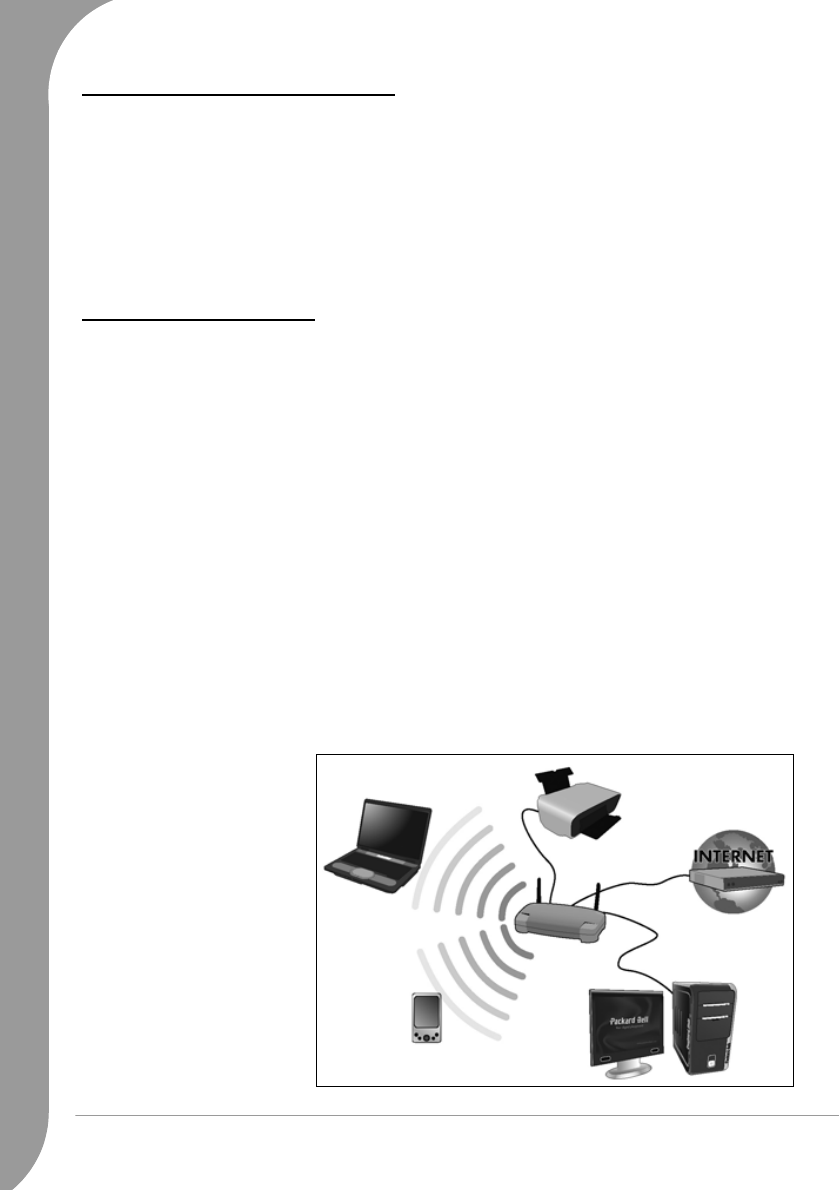
18 -
Quick Start & Troubleshooting Guide
What are Benefits of a Wireless Network?
Mobility
Wireless LAN systems allow allows you and other user’s of your home network to share access to files and
devices connected to the network, for example a printer or scanner. Further options allow you to share an
Internet connection with other computers in your home.
Installation Speed and Simplicity
Installing a wireless LAN system can be fast and easy and eliminates the need to pull cables through walls
and ceilings.
Components of a Wireless LAN
To set up your Wireless network at home you need to have the following:
Access point (or router)
Access points (routers) are two-way transceivers that broadcast data into the surrounding environment.
Access points act as a mediator between wired and wireless network. Most routers have a built-in DSL
modem that will allow you access to a high speed DSL internet connection. The ISP (internet service
provider) you have chosen often supplies an modem/router with the subscription to their services. Read
carefully the documentation supplied with your access point for detailed setup instructions.
Network Cable (RJ45)
A network cable (also called RJ45) is used to connect the host computer to the access point (see Illus-
tration below); this type of cable is also used to connect peripheral devices to the access point.
Wireless Receiver
This is connected to the computer that you wish to connect to your network, there are different types of
wireless receivers available, the most common are:
1. USB WiFi Receiver or “Dongle”: Plugs into a free USB port on your computer.
2. Wireless PC Card: This card is installed inside your computer in an available expansion slot.
3. Internal Card: This card is installed in portable computers and uses one or more internal aerials.
Diagram of a network using a router
1. Access point/Router
2. PC
3. Modem
4. Printer
5. Notebook
6. PDA
7. Network cables (RJ45)
➍
➌
➊
➋
➏
➎
➐
➐
➐


















